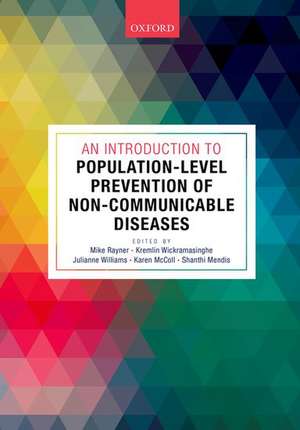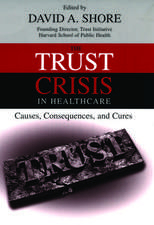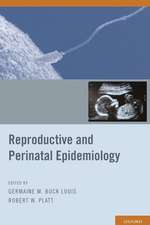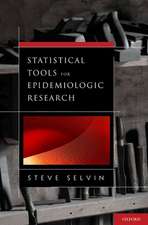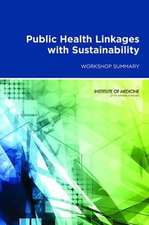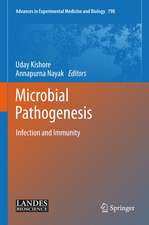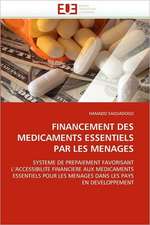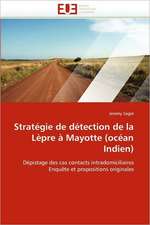An Introduction to Population-level Prevention of Non-Communicable Diseases
Editat de Mike Rayner, Kremlin Wickramasinghe, Julianne Williams, Karen McColl, Shanthi Mendisen Limba Engleză Paperback – 2 mar 2017
Preț: 426.89 lei
Preț vechi: 586.06 lei
-27% Nou
Puncte Express: 640
Preț estimativ în valută:
81.68€ • 85.29$ • 67.45£
81.68€ • 85.29$ • 67.45£
Carte disponibilă
Livrare economică 14-20 martie
Preluare comenzi: 021 569.72.76
Specificații
ISBN-13: 9780198791188
ISBN-10: 0198791186
Pagini: 276
Dimensiuni: 170 x 247 x 17 mm
Greutate: 0.49 kg
Editura: OUP OXFORD
Colecția OUP Oxford
Locul publicării:Oxford, United Kingdom
ISBN-10: 0198791186
Pagini: 276
Dimensiuni: 170 x 247 x 17 mm
Greutate: 0.49 kg
Editura: OUP OXFORD
Colecția OUP Oxford
Locul publicării:Oxford, United Kingdom
Notă biografică
Mike Rayner is a Professor of Population Health at the Nuffield Department of Population Health at the University of Oxford and Director of the Centre on Population Approaches for Non-Communicable Disease Prevention, based in that department. The Centre, which Mike founded in 1993, is a World Health Organisation Collaborating Centre and carries out research into the promotion of healthier and more sustainable environments particularly those related to diets and physical activity. Mike is also Chair of Sustain: the alliance for better food and farming in the UK and Chair of its Childrens Food Campaign. He is Chair of the Nutrition Expert Group for the European Heart Network. He is an ordained priest in the Church of England.Kremlin Wickramasinghe is a researcher at the Nuffield Department of Population Health at the University of Oxford. He joined the Centre on Population Approaches for Non-Communicable Disease Prevention (CPNP) in 2009 to work on the epidemiology of cardiovascular disease and associated risk factors. His research interests include multi-sectoral approaches to NCD prevention and implementation of NCD prevention strategies. The CPNP was awarded the status of World Health Organisation Collaborating Centre on Population Approaches for Non-Communicable Disease Prevention in 2013 and Kremlin is the Co-Director of the Collaborating Centre. He is also the Course Director for the Short course on prevention strategies for non-communicable diseases organised, by the University of Oxford.Julianne Williams is a doctoral candidate in Population Health at the University of Oxford. Broadly, her research seeks to clarify the complex relationships between peoples environments and their health behaviours and outcomes, especially in low- and middle-income countries. Her current research examines the influence of socio-economic and environmental factors on the health behaviours of adolescent schoolchildren in rural Sri Lanka. Previously, Julianne worked as a researcher in the Centre on Population Approaches for NCD Prevention at the University of Oxford, where she examined relationships between neighbourhood food environments and non-communicable disease (NCD) outcomes in Britain. She has also developed novel methods for using geospatial technologies to increase the accuracy of data collection in nutrition and obesity research. Julianne is a Registered Dietitian and received a Master in Public Health from the University of Washington.Karen McColl is a freelance consultant based in Lotissement La Thuile, Montagny, France.Dr Shanthi Mendis is a fellow at the Geneva Learning Foundation in Switzerland. She coordinated the global program for Prevention and Management of non-communicable diseases at the World Health Organization, Geneva, Switzerland. She has been the Senior Adviser/coordinator of the World Health Organization cardiovascular and non-communicable diseases programs from 2000. Dr Mendis served as Professor of Medicine, at the Faculty of Medicine, Peradeniya Sri Lanka from 1979 for twenty years. She is a Fellow of the Royal College of Physicians and a Fellow of the American College of Cardiology. She received post-doctoral training in the United Kingdom and USA, and has wide experience in Global Health, Internal Medicine, Cardiology, Policy development and Research in developing countries and has published widely.
